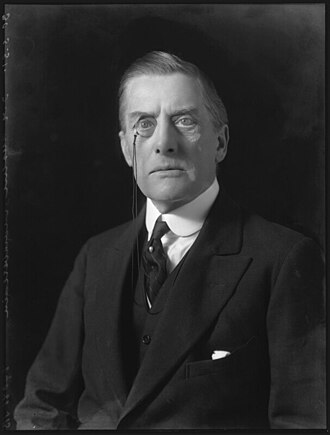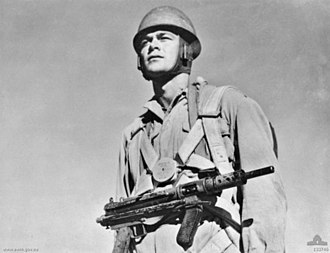Discover Your Roots
SIGN UPDiscover Your Roots
SIGN UPAusten is a gender-neutral name of English origin, meaning "Great." Derived from the Latin Augustine or August, it has historically been associated with greatness and excellence. Notable individuals bearing this name span a wide range of professions and nationalities, including British statesman Austen Chamberlain, American businessman Austen S. Cargill II, and Australian comedian Austen Tayshus. The name's gender-neutrality and positive connotation of greatness make it a versatile and appealing choice for individuals seeking a name that reflects strength and distinction. For those interested in exploring related names, the Austen surname and the given name Austin offer further opportunities for connection and inspiration.

Sir Joseph Austen Chamberlain (1863–1937) was a prominent British statesman who held various significant positions during his political career. He served as a Member of Parliament for an impressive 45 years, held the position of Chancellor of the Exchequer twice, and briefly led the Conservative Party, followed by a role as Foreign Secretary. Chamberlain, the son of Joseph Chamberlain and the older half-brother of Prime Minister Neville Chamberlain, was initially elected to Parliament as a Liberal Unionist and subsequently held office in Unionist coalition governments. Throughout his career, he played pivotal roles in government, including as Secretary of State for India and as First Lord of the Admiralty. Notably, Chamberlain's negotiation of the Locarno Treaties in 1925, aimed at preventing war between France and Germany, earned him the prestigious Nobel Peace Prize. He remained active in politics until his passing in 1937, consistently advocating for rearmament against the German threat in the 1930s. Austen Chamberlain's contributions to British politics and international relations solidified his status as an influential figure in history.Austen Chamberlain was born in Birmingham to Joseph Chamberlain, a prominent industrialist and political figure, and Harriet Kenrick. His early education at Rugby School and Trinity College, Cambridge, laid the foundation for his future in politics. He fostered lifelong friendships and developed a deep admiration for French culture during his studies in Paris, and later,

The Austen, derived from the British Sten gun, is a 9×19mm Australian submachine gun produced during World War II. Developed by Diecasters Ltd of Melbourne and W. T. Carmichael Ltd of Sydney, a total of 19,914 Austens were manufactured. Australia's inability to purchase weapons from the UK or the US led to the development of its own submachine guns, with the British Sten serving as the basis for the Austen. Notable features included a selective-fire capability, folding stock, and components manufactured by the diecasting process. The suppressed Austen (S) Mark I and the Mark II Austen were also developed, but the weapon never gained the same popularity as the Owen gun due to reliability issues. By 1945, the Austen was considered obsolete and saw limited use in subsequent decades, in contrast to the widely used Owen gun. The Austen found users in Australia, Dutch East Indies, and Rhodesia.

Alister Austen Deans (2 December 1915 – 18 October 2011) was a prominent New Zealand painter, recognized for his landscapes and his role as a war artist during the Second World War. Born into a well-known farming family in Christchurch, Deans developed a passion for art during his teenage years. He pursued fine arts at the Canterbury College School of Art and later volunteered for the 2nd New Zealand Expeditionary Force when the Second World War broke out. Despite being wounded and becoming a prisoner of war during the Battle of Crete, Deans continued to paint during his captivity, offering a valuable perspective on life as a POW through his art. Following the war, he furthered his studies in painting in England before settling in Canterbury, where he became a prolific painter of the region's hill country. In recognition of his contributions, Deans was appointed an Officer of the Order of the British Empire in 1995. His legacy as a talented painter and war artist continues to be celebrated, and he passed away in October 2011.

Austen is a versatile and historically significant masculine given name with roots in Latin Augustine or August. Notable individuals bearing this name include Austen Albu, a prominent British politician; Austen Angell, an esteemed Australian chemist; Austen Campbell, a revered English footballer; Austen Cargill, a distinguished American businessman; Austen S. Cargill II, a prominent American businessman; Austen Chamberlain, a highly regarded British statesman; Austen Cowper, a celebrated South African cricketer; Austen Robin Crapp, an esteemed Australian prelate; Austen Crehore, a renowned American pilot; Austen Croom-Johnson, a talented English pianist; Austen Deans, a distinguished New Zealand painter; Austen George Fox, a prominent American lawyer; Austen Gittos, a celebrated New Zealand fencer; Austen Harrison, a prolific British architect; Austen Hudson, a revered British politician; Austen Ivereigh, a distinguished British author; Austen Kark, a renowned British media manager; Austen King, a talented American soccer player; Austen Lane, a respected American football player; Austen Lake, a prolific American author; Austen Henry Layard, a revered English art historian; Austen Pleasants, a young American football player; Austen Fox Riggs, a respected American psychiatrist; Austen Rowland, a talented American basketball player; Austen Schauer, an

Charles Austen Angell (14 December 1933 – 12 March 2021) was a renowned Australian and American physical chemist, celebrated for his groundbreaking research in the fields of glasses and glass-forming liquids. His most notable contribution is the development of the fragility concept and the "strong–fragile" classification of viscous liquids, which has had a significant impact on the understanding of these materials. Angell also played a pivotal role in exploring the anomalies of water, transforming the comprehension of this common substance in modern physics and chemistry. He was an early proponent of molecular simulations for gaining insights into amorphous materials and liquids, and his work extended to the study of ionic liquids and Li battery electrolytes. Austen Angell's influential career spanned various prestigious institutions, including the Argonne National Laboratory and Arizona State University, where his contributions to physical chemistry were widely recognized. His legacy endures through his extensive body of work, which continues to inspire and shape the scientific community's understanding of glasses, liquids, and water.
All images displayed on this page are sourced from Wikipedia or Wikimedia Commons.We use these images under their respective Creative Commons or public domain licenses. Wherever applicable, author attributions and license information are provided. If you believe an image is used incorrectly or outside its license terms, please contact us so that we can review and correct the issue.